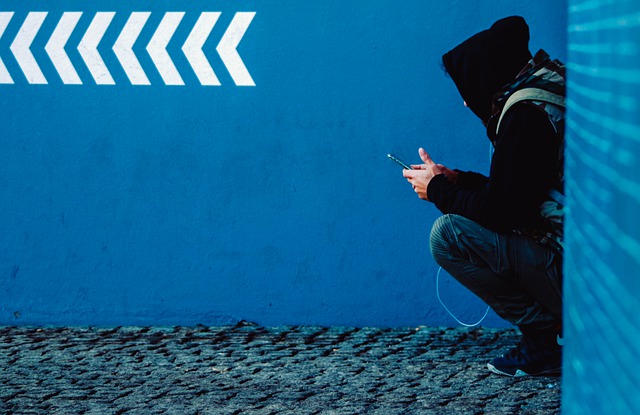Social media is a powerful tool that can be used for good or bad. It can help us make connections with people around the world, but it can also be used for negative things like bullying, stalking, and harassment. The question is, what do you do with social media? Do you have a set of dos and don’ts for social media?
If you think social media is a pain to keep up with, you’re right. What started as a fun way to stay connected with friends has since become an all-encompassing juggernaut of everything you can think of. Social media can be an extremely powerful tool when used properly. Even though it’s a great way to engage your audience, and build relationships with your contacts, social media can be a tricky territory.
At some time or another, most of us have experienced the regret of using social media wrongly. By now, though, there are plenty of guidelines and lessons we’ve learned to keep us from making the same mistakes again and again. But it never hurts to review important guidelines from time to time. Plus, as social media platforms change and evolve, so do our best practices for using them. Sticking to a set of Dos and Don’ts of social media can help you organize your strategy, save you a few headaches, and help you invest your time in the right way.
Here are 10 dos and don’ts of social media to help you navigate it smartly.
1. DO take time to think before posting something on social media.
Make sure you know what you’re saying before you hit “send,” because once the post is out there, it can be very hard to take back. Remember the popular saying, “The internet never forgets”? Exactly.
It’s easy to get carried away by the spur of the moment, but you should always make sure that whatever you’re about to post is something you would be comfortable sharing with your grandmother or your boss. If it isn’t, hold off for a bit — you’ll thank yourself later.
2. DON’T assume that social media is the only way to reach someone.
Social media isn’t the be-all and end-all of your communication strategy. It’s possible to reach out to someone on social media, but it’s also perfectly acceptable to call them or send an email. When you’re making a pitch or sending something important (like an invoice), don’t restrict yourself to social media channels.
A lot of people think that social media is a great way to communicate with others, but it’s not always the right choice. Social media is a great way to connect with friends and family, but it’s not always the best place for everything, for example, work-related communication. This includes announcements about your company and updates about projects you’re working on. If you have something that needs to be communicated in a professional capacity, do it through email or selected communication platforms like Slack.
3. DO know the purpose of your posts and the way you communicate.
On social media, you’re not just posting for the fun of it. You’ve got a purpose and goal in mind, so make sure everything you post is geared toward achieving those goals. Be clear about why you’re posting on each platform, who your audience is, what emotions you want them to feel and how you want them to respond. Then write with that purpose in mind.
When it comes to choosing which platform to use for any given message you should consider your audience and connections first and foremost. Do they live in Stockholm? Do they run marathons? Are they mostly women aged 25-40? Are they into art or technology?
4. DON’T overanalyze every comment, response or like.
In the world of social media, it’s easy to get caught up in the constant feedback loop of likes, shares and comments. While it’s important to embrace that your content is reaching people and resonating with them, it’s also important to remember that you can’t please everyone.
When you’re posting on social media, make sure you’re doing so because it’s something you really care about or believe in. If someone doesn’t like what you posted or responds negatively to it, don’t let their reaction affect you negatively.
5. DO check yourself when you start to feel jealous.
This is a very important point. It’s also one that many people have trouble with, as jealousy is often seen as a sign of insecurity and an inability to be happy for others. And while it’s true that you should be able to celebrate your friends’ accomplishments without feeling threatened by them, this doesn’t mean that you shouldn’t examine your motivations when you start to feel jealous of someone else.
If you find yourself getting upset about how much better than you someone seems to be, take a step back and think about what they are doing differently that makes them good? Maybe they’re posting content that relates strongly to their audience? Maybe they’re just good at taking photos? Try to channel energy into learning from others and improving yourself rather than jealousy.
6. DON’T compare your life to those of others on social media.
We know, it’s hard not to compare yourself to other people when you see their successes, failures, or opinions. But remember that they may feel the same way about you. That person who always posts about how great their relationship is probably has days when they think otherwise. And the person who appears to have zero interest in relationships might just be waiting for someone special to come along before posting such happy updates themselves.
Instead of focusing on what other people are doing and comparing it with your own experiences, focus on yourself and what makes you happy every day.
7. DO take a break when you need one.
One of the biggest mistakes people make when using social media is feeling like they have to be on it all the time. You don’t. If you’re feeling overwhelmed, or if you’re just in a bad mood, take a break. Social media should be fun, not stressful and no rule says you can’t take a break from time to time and come back later.
If anything, taking breaks will help keep your social media use more positive. It’ll give some space between posts which may allow you have a better perspective each time. So, while I do recommend logging off and spending quality time with family and friends in real life occasionally, (or maybe even more), don’t feel guilty about taking a breather now and then.
8. DON’T post everything about your life online.
Social media is a great way to connect with friends and family, but it can also be a huge time waster. You find yourself posting photos of yourself on the beach when you’re supposed to be working, or sharing the details of your lunch break when your friends would rather be doing other things.
The problem is that our lives are not that interesting (not as most people portray it to be anyway). But because we want everyone to think we have great lives, we share every detail online so our followers think they know everything about us (even though they don’t). This leads to some serious problems such as feeling like frauds, oversharing private information that could backfire in embarrassing ways, wasting time trying to post perfect photos, or just giving up altogether.
9. DO keep things in perspective.
Social media is far from the real world, and what we see isn’t always real. Nowadays, people are quick to share their opinions with everyone and anyone. Don’t let other people’s opinions affect your self-esteem. You have just as much right to feel good about yourself as they do.
Remember that you don’t have to agree with everyone on every topic or issue and that’s okay. Just because someone has different thoughts than yours doesn’t mean they’re wrong or that their opinion is any less valid than yours. It just means they’ve got something different going on inside them. You should always try to keep things in perspective.
10. DONT argue with people who disagree with you online.
Arguing with people online only makes things worse. Instead, take a break from social media until things calm down. This will help everyone involved cool down and think about what happened without being distracted by more angry posts from people who just want attention.
Your goal should be to engage in positive conversations with people who share similar interests as you do. This will help build up your network of friends and create more meaningful connections.
Be honest and authentic, and refrain from letting other people’s content affect how you live your own life.
As our society becomes more dependent on social media as a source of entertainment and connection, it becomes more important to be aware of who you follow and what you consume on social media. Also, you are your person, with your own unique experiences and interests. Don’t let other people’s behaviour influence what you do or don’t do on social media.
Final Thought
Even with the dos and don’ts of social media, remember that you’ll have to learn how to use on your own and make your own rules as you go. This is a world that changes daily, yet remember that the rules of common sense apply. Use your judgment and invest your time in social media wisely. And as you learn more about people online, take the time to get to know them offline as well. This can create genuine friendships that might not have been possible in the past. And as always be kind and thoughtful of others in the process.



